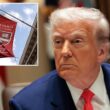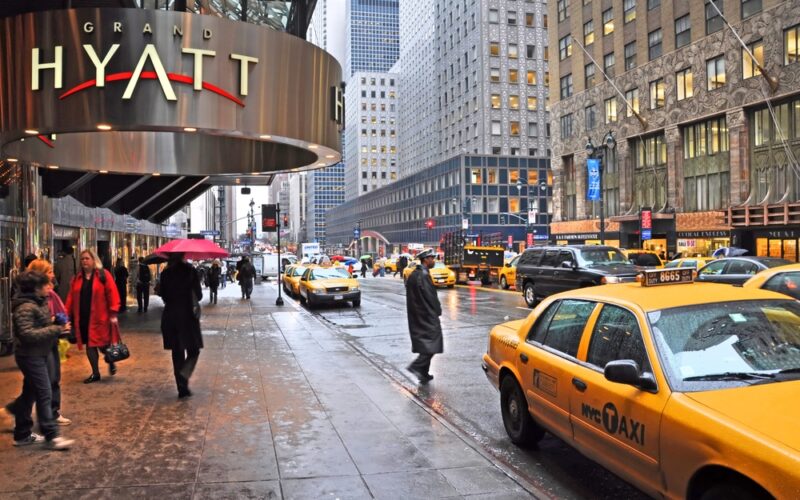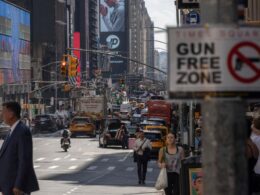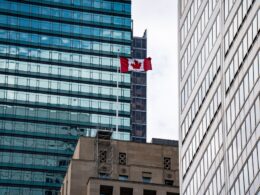Tourism is a driving force of our economy, pumping billions into New York City every year. Nearly 65 million tourists came to the city in 2024 — the second highest number on record. That’s a major win for our tax base and tens of thousands of hotel workers who rely on the industry for good-paying, career-creating jobs.
But the industry now faces major headwinds — trade wars, inflation, borrowing costs — that could set it back once again, as it still struggles to fully recover from COVID. And New York is more vulnerable than other major markets to a downturn because the cost of doing business here is already so high.
The success of our tourism industry depends on a thriving hotel industry, and hotels need relief to stay open, secure new investment, and be competitive with other cities, particularly other gateways like London and Paris. So how can we meet the moment, support hotels, and unlock New York’s full potential as a top tourist destination? By dropping our outrageously high tax on tourists — the highest among major cities in the nation.
With the budget process in full swing, City Hall and the City Council have a chance to boost city revenue by trimming the hotel room occupancy tax. It may seem counterintuitive, but reducing this tourism tax from 6% to 3% will actually bring in more tax money, not less, by boosting the number of hotel rooms filled per night per year.
Lower rates as a result will equal more tourists and more tax revenue. We already have hard proof that this works: In December 1994 — the last time the city made such a reduction — the Independent Budget Office found that, “despite the one percentage point decline in New York City’s hotel occupancy tax rate… total city hotel occupancy tax receipts have actually increased.”
Since 1994, the tax on tourists has increased and could keep climbing if not checked. On top of the 6%, hotel guests have to pay a 9% sales tax, $2 room fee, 0.375% commuter surcharge, and $1.50 convention center fee per room per day. New York hotels also pay the highest property taxes in the country.
Such a high tax on tourists is bad for hotels, workers, and tourism. And things are only going to get worse unless City Hall and the City Council takes action.
At the same time, New York has huge opportunities for increased business on the horizon, including the 2026 World Cup, which will bring in 1 million tourists, New York’s 400th anniversary celebrations, and annual marquee events like the U.S. Open and NYC Marathon. But only if the hotel industry can take full advantage by driving demand.
The supply of available hotel rooms has dramatically decreased as a result of devastating COVID shut-downs and the industry’s commitment to housing asylum seekers and others from our overwhelmed shelter system. As those rooms open up again, hotels will need investment that is much harder to get as high taxes on the industry persist — and we can only do something about the latter as a city.
Hotel owners, especially small, family-run businesses, are worried about closing and laying off more workers. The industry has already lost thousands of jobs since 2019. As a top employer of low-income and immigrant New Yorkers, the industry needs every chance to restore and create jobs for those struggling to make ends meet.
Cutting the tourism tax to 3% will boost hotel stays, especially group bookings critical to hotels’ success. A co-author of a recent study on hotel occupancy taxes confirms that “higher occupancy taxes can dampen certain market segments, particularly group business.” Lowering the tax on tourists will allow hotels to secure group bookings we’re now losing out on. It will keep hotels open and workers employed. It will also allow new hotels to be built.
And it will put more money into New Yorkers’ pockets. The tourism economy saved New York households $2,000 last year — and that number would also increase. Imagine how much more New Yorkers could save if the mayor and the Council encouraged a steady flow of tourists to stay in our hotels and spend year-round.
If we really want to attract more tourists to the Big Apple, we need to give them more reasons to stay in our hotels. The hotel industry is the backbone of the tourism economy. To fully capitalize on its potential, we must cut the hotel room occupancy tax — a tax on tourists — to 3%. Investing in hotels now will boost the city’s economy and benefit all New Yorkers.
Dandapani is president and CEO of the Hotel Association of New York City.








